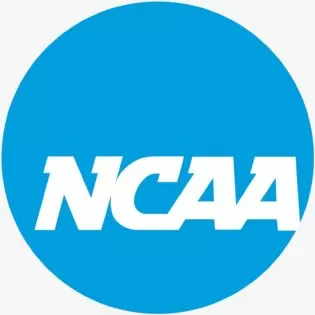The world of college sports has been rocked by a recent development that has sent shockwaves through the entire NCAA community. Something real shady is brewing behind those shiny conference logos, and it’s causing quite a stir among the top power schools. Rumors have been circulating that these schools are being handed a pen and told, “Sign this—or get out.” But what exactly is this mysterious contract that is causing such a commotion? And why are these power schools feeling pressured to sign it?
Well, it’s not a lease or an NIL deal, as one might expect. It’s a straight-up “blood oath” contract from the top dogs—SEC, Big Ten, ACC, Big 12—locking schools into new rules with no room for negotiation. This has caused a major divide within the NCAA, with some schools feeling forced to sign the contract while others are standing their ground and refusing to do so. The fallout from this NCAA settlement is escalating, and it seems like a tense legal confrontation is on the horizon.
The root of this issue lies in the recent settlement between the NCAA and former college athletes in the Alston v. NCAA case. The settlement allows for athletes to receive education-related benefits, such as laptops and tutoring services, in addition to their scholarships. While this may seem like a positive step towards fair treatment of college athletes, it has also opened up a can of worms for the power schools.
These schools, who bring in millions of dollars in revenue each year, are now facing the possibility of having to pay for these additional benefits for their athletes. And they are not happy about it. In fact, they are so unhappy that they are willing to sign a “blood oath” contract to avoid it. This contract essentially locks them into a new set of rules that would limit their ability to offer additional benefits to their athletes. It’s a move that is causing a lot of tension and division within the NCAA.
The power schools argue that they are already providing their athletes with top-of-the-line facilities, coaching, and other perks that go beyond their scholarships. They believe that this should be enough and that they should not be forced to pay for additional benefits. On the other hand, smaller schools and conferences are in favor of the settlement, as it levels the playing field and allows them to offer similar benefits to their athletes.
The tension between these two sides is palpable, and it’s clear that a legal confrontation is on the horizon. The power schools are not willing to back down, and they are preparing for a fight. They have hired top lawyers and are ready to take on the NCAA in court. This could have major implications for the future of college sports and the NCAA as a whole.
But what does this mean for the athletes? After all, they are the ones at the center of this controversy. While the power schools may argue that they are providing enough for their athletes, the reality is that these athletes are the ones bringing in the revenue for these schools. They are the ones putting their bodies on the line and sacrificing their time and energy for the success of their teams. Shouldn’t they be entitled to some of the profits?
This is a question that has been debated for years, and it seems like we are finally reaching a tipping point. The NCAA has long been criticized for its treatment of college athletes, and this settlement is just the latest in a series of events that have brought this issue to the forefront. It’s clear that change is needed, and the power schools are not willing to go down without a fight.
As the legal battle between the NCAA and the power schools looms, it’s important to remember that at the heart of this issue are the athletes. They deserve to be treated fairly and to receive the benefits that they have worked so hard for. It’s time for the NCAA to step up and make the necessary changes to ensure that college athletes are not being exploited for their talents.
In the end, it’s not just about a “blood oath” contract or the power schools’ desire to protect their profits. It’s about doing what’s right for the athletes and creating a fair and equitable system for all. Let’s hope that the NCAA and the power schools can come to a resolution that benefits everyone involved. Because at the end of the day, the true spirit of college sports is about teamwork, fairness, and the pursuit of excellence.

